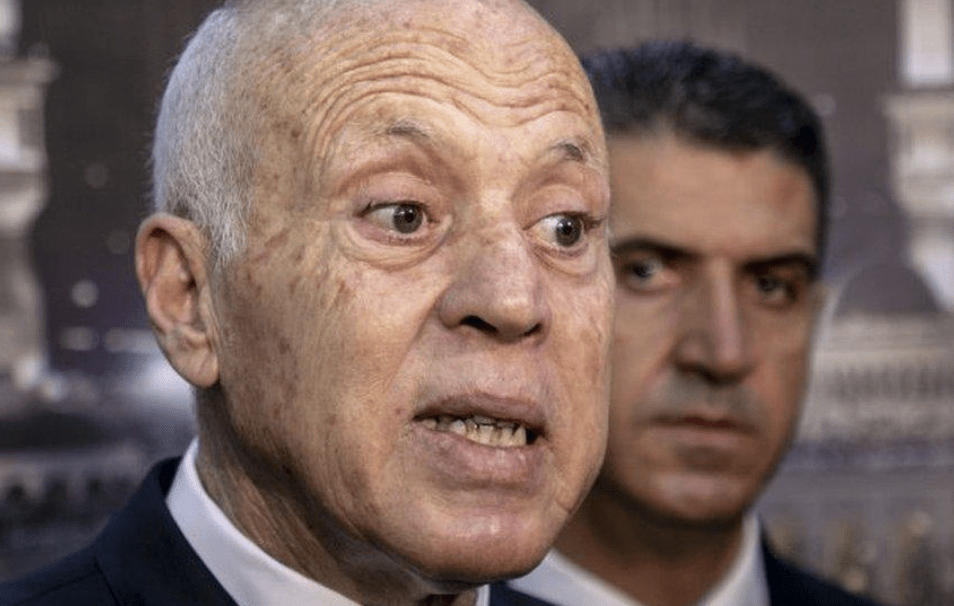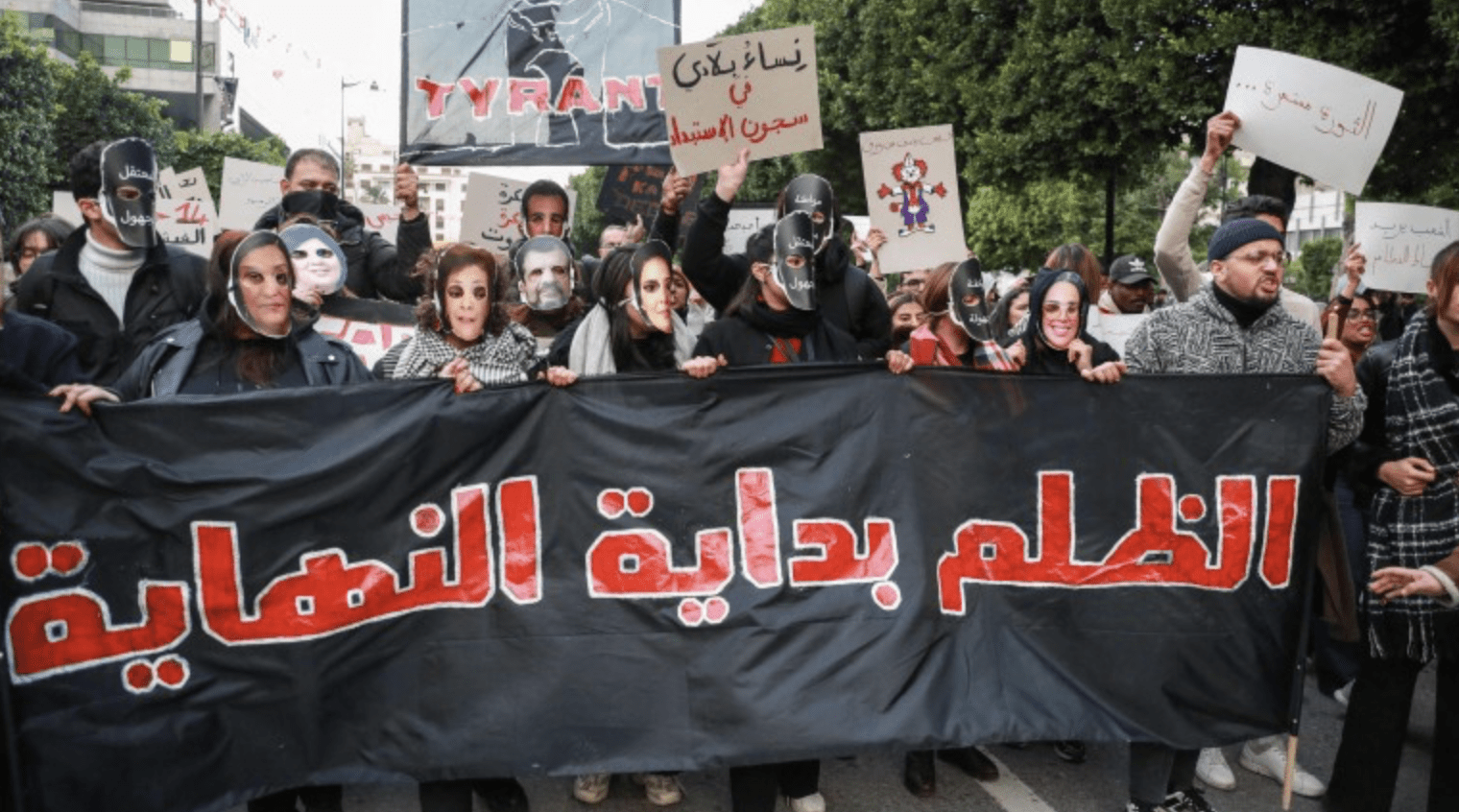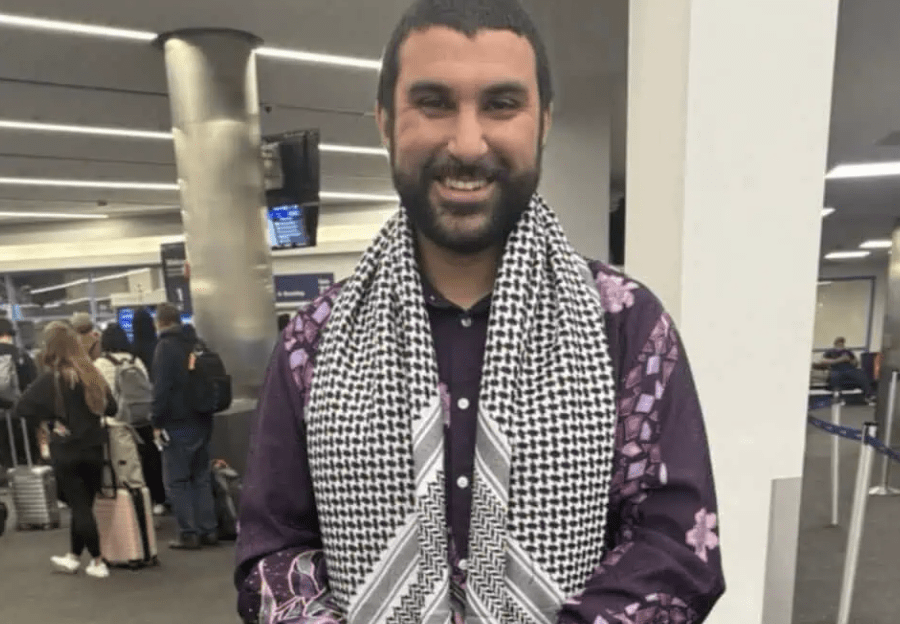Ibtissam Lachgar: the Moroccan feminist defying conservatism
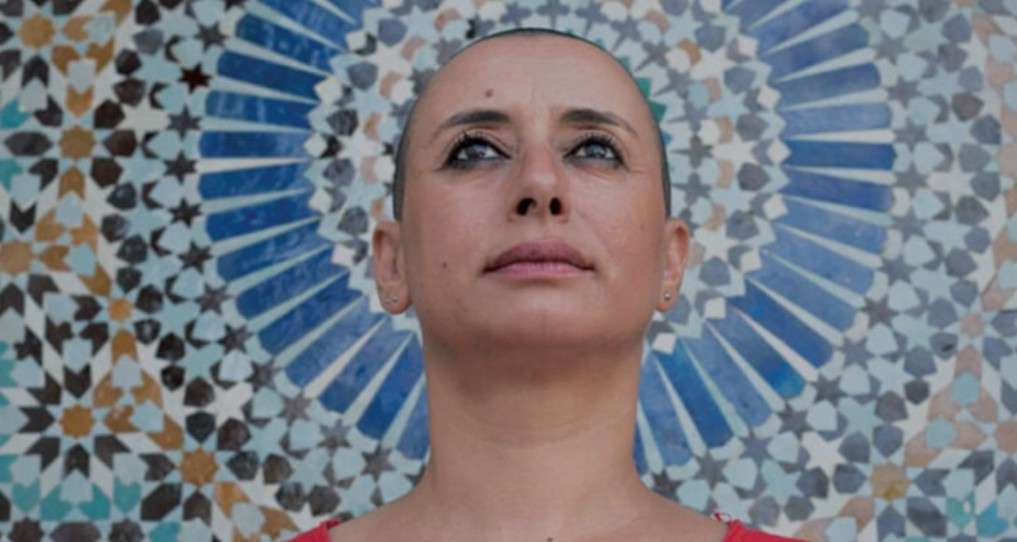
The activist captured the headlines since she wore a controversial T-shirt which ruffled the feathers of many conservatives, but this is not the first time she has challenged Morocco’s grip on traditional values.
The Moroccan feminist Ibtissam “Betty” Lachgar was sentenced to 30 months in jail on September 3rd after she was arrested on August 10th in Rabat. Her detention took place following her choice to post a picture on X of her wearing a T-shirt, bearing a phrase deemed offensive to Islam.
The slogan, which made a reference to women and homosexuality, prompted an outcry from Islamists. And before her fate was determined, the former justice minister, Mustapha Ramid, urged for the 50-year-old to be convicted. Some might argue she has been lucky, as it was initially thought that she could face five years behind bars.
The prison sentence has sparked an outcry from observers, with Human Rights Watch on September 11th calling for Moroccan authorities to reverse the move, arguing that freedom of expression needs to be upheld.
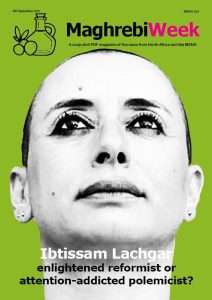
Associate Middle East and North Africa director at Human Rights Watch, Hanan Salah, said: “Sentencing an activist to more than two years in prison merely for posting a photo on social media is a huge blow to free speech in Morocco.”
What’s more, the wider state of the country’s free speech has prompted calls for progress. Reportedly, the acting Middle East and North Africa director at Human Rights Watch, Balkees Jarrah, had appealed to France to urge Morocco to free citizens who have faced detention, due to state restriction on free speech. The bid for western intervention was prompted by the six-month imprisonment of the Moroccan activist Fouad Abdelmoumni. Abdelmoumni was handed the sentence on March 3rd, for his Facebook post which denounced relations between his country and France and claimed that the Moroccan government is using spyware to crack down on its critics.
But it doesn’t stop there. Discussions on the situation in Palestine have also been curtailed in the North African country. On November 5th 2024, Moroccan lawmaker, Nabila Mounib said: “No imam can speak about the Palestinian issue.”
So whilst Morocco’s diplomatic interests seem to have prevailed over free speech, limitations on speech ultimately affect journalists, who seem to face a legal system which superficially respects their rights. Imru AL Qays Talha Jebril, author of the Digital News Report’s country page on Morocco, research fellow with the Moroccan Institute for Policy Analysis and co-managing partner of the Moroccan consultancy firm A&K Advisors, said: “Morocco’s constitution guarantees freedom of expression and prohibits censorship, but in practice, critical journalistic voices are often subject to harassment or even criminal proceedings.” The freedom watchdog, Freedom House, has also echoed this stance. In its “Freedom On The Net 2023” report for Morocco it states that whilst the constitution theoretically safeguards free speech, such principles are not upheld by the judiciary.
With this context in mind, the imprisonment of Lachgar comes as no surprise, but we need to go beyond what the T-shirt slogan says at face-value and consider her motivations, in order to understand how she has championed free speech.
The activist has asserted that the contentious slogan “had no direct connection with the Islamic religion.” She stressed that her motive behind wearing that T-shirt was to condemn how religions are instrumentalized by misogynistic language that challenges the principle of women’s rights. It seems, the slogan was used in order to signify how for many people, the conceptualisation of a higher power is exclusively one that is male. She has effectively challenged this concept. But while this champions feminist values, what does it actually do for women’s rights and free speech? On a practical level, is it more provocative than effective?
When you consider the presence of religion in Morocco, one wonders if the statement could be counterproductive. Faith plays an important part in Moroccan society, specifically Islam, with 99% of its population being Sunni Muslim. Although, according to the Executive Director of The Study of Religions Across Civilizations, and fellow at the Haifa Center for Mediterranean History, Chris PreJean, Moroccans hold diverse views surrounding the purpose of religion. PreJean asserts that while some identify as liberal citizens, the country’s conservative counterpart believes that this concept of citizenship goes against Islam. In other words, personal freedoms and democratic principles seem to be of varying importance to Moroccans, which suggests that Lachgar’s decision to wear that T-shirt has the potential to be as effective as it does ineffective, in attracting support.
“Sentencing an activist to more than two years in prison merely for posting a photo on social media is a huge blow to free speech in Morocco.”
The presence of liberal thought in the country could explain why she has received some domestic endorsement. Following Lachgar’s arrest, she has also garnered support from the international community. Human rights activists and feminist groups have condemned this curtailment of free speech, using the slogan #FreeBetty.
But free speech is not the only subject of relevance here. When you consider her previous activism, it becomes clear that her most recent act of resistance is an extension of an ongoing defiance towards Islam. Her first arrest took place after she organised a picnic to take place during Ramadan in 2009. The move was a protest against Article 222 of the penal code which punishes those who break the fast in a public setting.
What’s more, she has attempted to fuse her anti-religion stance with her feminist beliefs. She believes religions are both patriarchal and misogynistic and defines herself as an atheist. And with Lachgar being the daughter of a trade unionist and a human rights defender, activism in the broad sense of the word, seems to be in her blood.
At this point, It might be tempting to assume that she is quite woke, but her attempts to purvey social justice reflect a much broader ideology in which political correctness is not a concern. In 2020, she told the Moroccan publication TelQuel: “Rights and freedoms must be grabbed. (…) Progress will not be made by fighting meekly, handling things with gloves, or sticking to what is politically correct.”
She has evidently been anything but meek, boldly going against the enforcement of law. She helped organise a “kiss-in”, which took place in 2013, in front of the parliament in Rabat. The event, which saw roughly a dozen couples kissing outside parliament, took place to express solidarity with three teenagers who were arrested in Morocco for posting Facebook pictures of two of them kissing.
She is also the co-founder of the Alternative Movement for Individual Liberties (MALI). According to the Euro-Mediterranean Women’s Foundation, the group champions women’s freedoms including reproductive rights, freedom of expression, and the freedom to be secular, while seeking to curb all forms of violence. LGBT+ rights are also a focal point of the movement, which also advocates for gay relationships.
In the context of reproductive rights, Amnesty International has said that under the Moroccan penal code, abortion is banned unless it is carried out by a licensed doctor or surgeon and is regarded as essential to protect the woman’s life or her health.
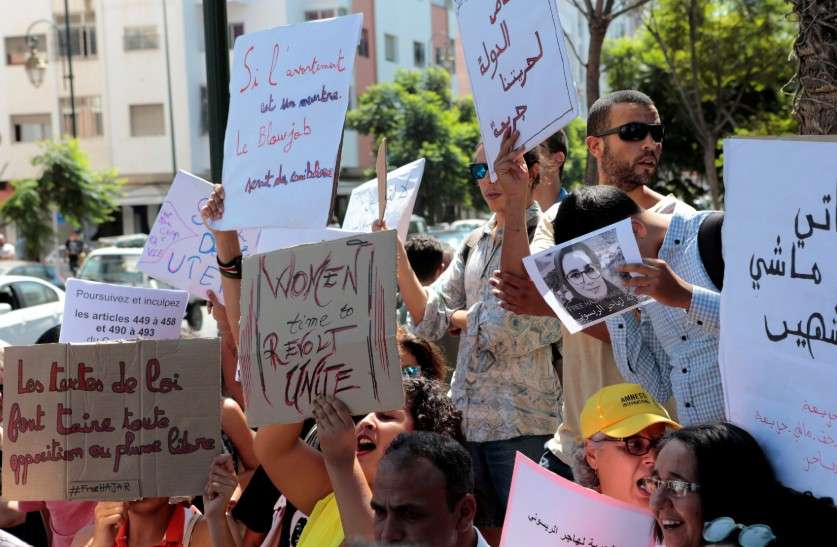
The limitations to accessing abortions in Morocco has forced women to take desperate measures, including backdoor abortion procedures, according to the Amnesty International report published on May 14th 2024.
The methods that were reported include ingesting dangerous chemicals, physical violence as well as misapplying pharmaceuticals. Out of the 33 women who spoke to Amnesty, four of them needed urgent medical care after carrying out self-induced abortions.
Lachgar has demonstrated her awareness of the desperation of Moroccan women seeking abortions. During 2012, the activist endorsed the docking of a Dutch ship in Morocco which was trying to offer the procedure.
Her movement’s focus on LGBT+ rights equally serves a crucial cause. Morocco does seem to be doing better than other nations in the Middle East and North Africa with regards to its treatment of the LGBT+ community, but the circumstances there are far from ideal. In April 2022, at least 50 to 100 gay men had been outed, according to rights activists. The men were outed after they had been identified on meeting apps during the coronavirus lockdown. Activists have said there were at least three cases of men being thrown out of their homes.
In Morocco, homosexual acts are illegal and could land someone in up to three years in jail, according to the international LGBT travel association, IGLTA.
In the case of women’s rights, which is blatantly a key focus of her activism, Morocco also faces a number of key challenges. According to Girls Not Brides, in Morocco, 14% of girls are married before the age of 18. Women are also given less inheritance than men, with male heirs getting double the inheritance of female heirs. Additionally, following a divorce, men are automatically granted custody of their children.
So what has Lachgar done to make a difference? In Lachgar’s own words, ”reclaiming the street” and “civil disobedience” are two key components of her activism. She has been a key force of notable controversial acts of resistance which sought to challenge conservative values. But whilst controversial, her most recent effort does feel a little disappointing. Yes, it does attempt to challenge restrictions on speech, but it does not on a practical level help to solidify the Moroccan population’s personal freedoms.
Ultimately, the kiss-in which protested Morocco’s crackdown of social media posts, Lachgar’s endorsement of providing Moroccans with greater access to abortions, and the picnic during Ramadan all sought to defy restricted freedoms in Morocco. But wearing a “blasphemous” T-shirt which refers to gay women, does very little to feasibly strengthen women’s rights, nor does it boost LGBT rights. Time will tell if the move has done any good for free speech.
Maghrebi.org, The Independent, Le Monde, TelQuel, Human Rights Watch, DAWN, Africanews via AP, Reuters Institute, Freedom House, The London School of Economics and Political Science, HESPRESS English, France 24 via AFP, Euro-Mediterranean Women’s Foundation, Amnesty International, IGLTA, The Fund for Global Human Rights, Girls Not Brides
Want to chase the pulse of North Africa?
Subscribe to receive our FREE weekly PDF magazine





